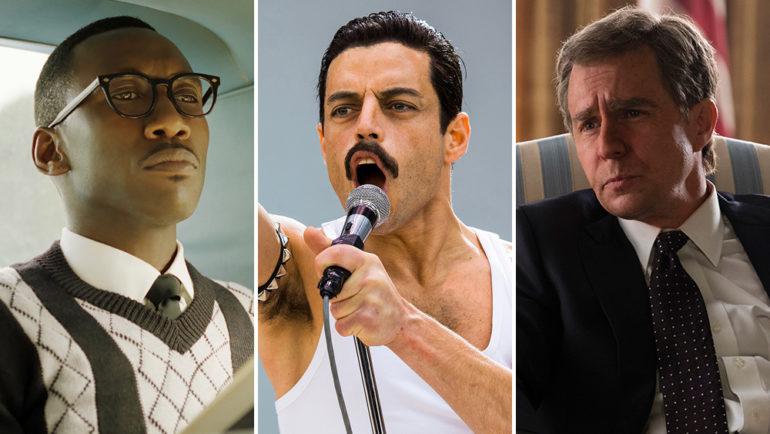Inside an Oscar Season of Anger
By Kristopher Tapley
LOS ANGELES (Variety.com) – The furor that has flared around virtually every major Oscar rival this year has turned the ongoing awards season into a particularly ugly one. As the proceedings continue to devolve into a fit of collective rage aimed at any and all, it’s worth a recap.
Just before the season kicked off at the Venice and Telluride film festivals, the first fracas struck, though it ultimately amounted to little more than a filmmaker beef. On Twitter, outspoken “Sorry to Bother You” director Boots Riley slammed “BlacKkKlansman” for inaccuracies, and accused director Spike Lee of promulgating disingenuous pro-law-enforcement propaganda. A separate Twitter confrontation with screenwriter Charlie Wachtel escalated until the “BlacKkKlansman” scribe deleted his entire Twitter account. The whole spat lasted at least until the Governors Awards in November, where Riley said Lee shouted to him, “I’m Miles Davis, you’re Chet Baker!!!”
The next controversy was an utterly bogus one stoked by Florida Sen. Marco Rubio on, you guessed it, Twitter: “First Man,” an account of the Apollo 11 moon-landing mission, did not explicitly depict the raising of the American flag on the surface of the moon. Clutch the pearls! The complaint seemed too silly to stick (the film is utterly patriotic), but it may have actually limited heartland box office dollars; the film wound up a commercial disappointment.
“A Star Is Born” was targeted soon after for its association with producer Jon Peters, who has a long history of sexual harassment allegations. Warner Bros. and director Bradley Cooper dealt with the charge swiftly, citing contractual obligations to include Peters’ name in the credits. But he did not receive the official Producers Guild mark on the film and would not share in a possible best picture nomination.
This was all before the Toronto Film Festival had even come to a close with its annual People’s Choice Award, which went to “Green Book.” That film, too, would weather a storm — multiple ones, in fact.
First came Viggo Mortensen’s unmalicious n-word gaffe at a Q&A session, which was quickly addressed with an apology. However, the incident stoked general feelings in some quarters that Peter Farrelly’s film is outdated in its handling of race relations. Later, the family of Don Shirley, the character played by Mahershala Ali, called out the movie, alleging fabrications. Surely that would be enough heat for one contender. Well…
Days after “” won the Golden Globe for best comedy or musical, a 21-year-old interview with Farrelly “resurfaced” the week of Oscar voting, detailing his apparent penchant for jokingly exposing himself to co-workers. The very same day that bubbled up, a three-year old tweet from one of the film’s Globe-winning writers, Nick Vallelonga (son of subject Tony Vallelonga, played by Mortensen), suddenly came to light. “100% correct,” he wrote in response to a tweet from then-presidential candidate Donald Trump. “Muslims in Jersey City cheering when towers went down. I saw it, as you did, possibly on local CBS news.” Both Vallelonga and production company Participant Media later issued statements of contrition.
Taking its lumps as well: “Bohemian Rhapsody,” the Globe winner for best drama. The Queen biopic had mostly just cruised along making money hand over fist, impervious to negative reviews and the (largely web-based) sniping of detractors, who felt the movie was cravenly broad in its approach. But the knives really came out following the Globes: Those citing the cloud of sexual assault allegations hovering over director Bryan Singer suggested the movie’s laurels are an affront in the #MeToo era. Singer did not win the Globe himself as he is not a producer of the film, though he was an official BAFTA nominee in the best British film category, which recognizes both producers and directors.
Even Alfonso Cuarón’s deeply personal study of his childhood nanny’s life, “Roma,” has been caught in the cycle. Some have found it to be exploitative of its subject, Liboria “Libo” Rodríguez, and a film fatally told from the perspective of privilege. Cuarón has repeatedly said it was this very privilege he hoped to examine with the project, but that hasn’t mollified his critics.
Oh, and “Vice” is — quietly, given this fray — probably the most divisive best picture contender we’ve ever seen. Some have outright called it the year’s worst film. The industry, so far, disagrees.
(All of this, by the way, as would-be Oscars host Kevin Hart found himself bowing out of the gig due to a history of homophobic tweets and comedy routines, which he went on to address on “The Ellen DeGeneres Show” and Variety‘s “Playback” podcast. And don’t forget SAG-AFTRA, whose leadership is vocally peeved with Academy brass for demanding exclusivity of awards presenters.)
So that’s seven films which have become grist for the commentariat in some way, shape or form. That feels like an outsized number. Are we all so angry at the direction of things sociopolitically that the usual sensitivities are heightened? Because truly, nothing feels like it’s going to be good enough this Oscar season. And if other industry favorites playing in the background of this mess were to find better traction in the race, such as “Black Panther,” “Crazy Rich Asians” or “A Quiet Place,” wouldn’t they be more loudly dismissed as mere populist entertainment?
Only “The Favourite” has managed to keep its nose clean. Perhaps the statute of limitations has expired on the possible sins of an 18th century-set romp about Queen Anne’s court.

